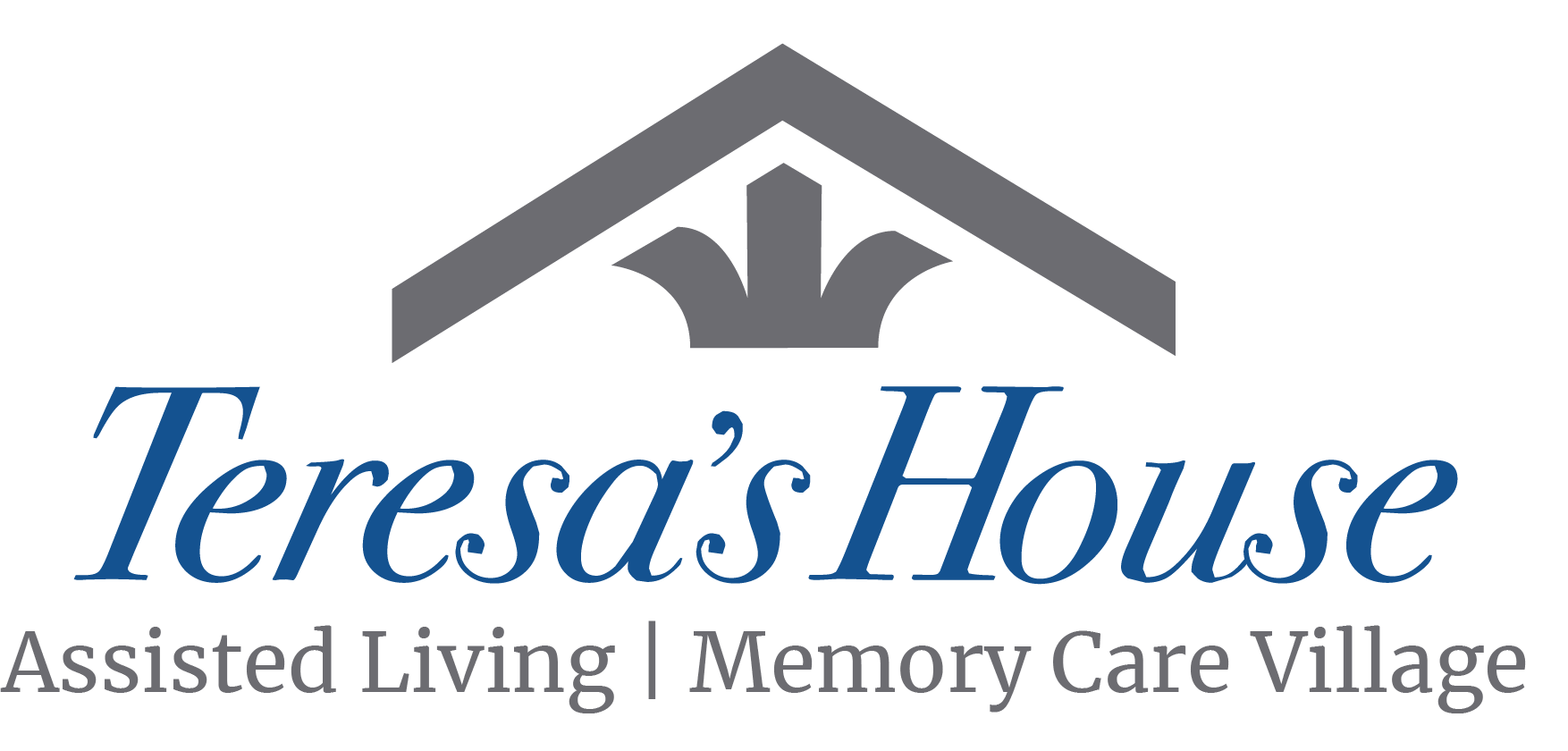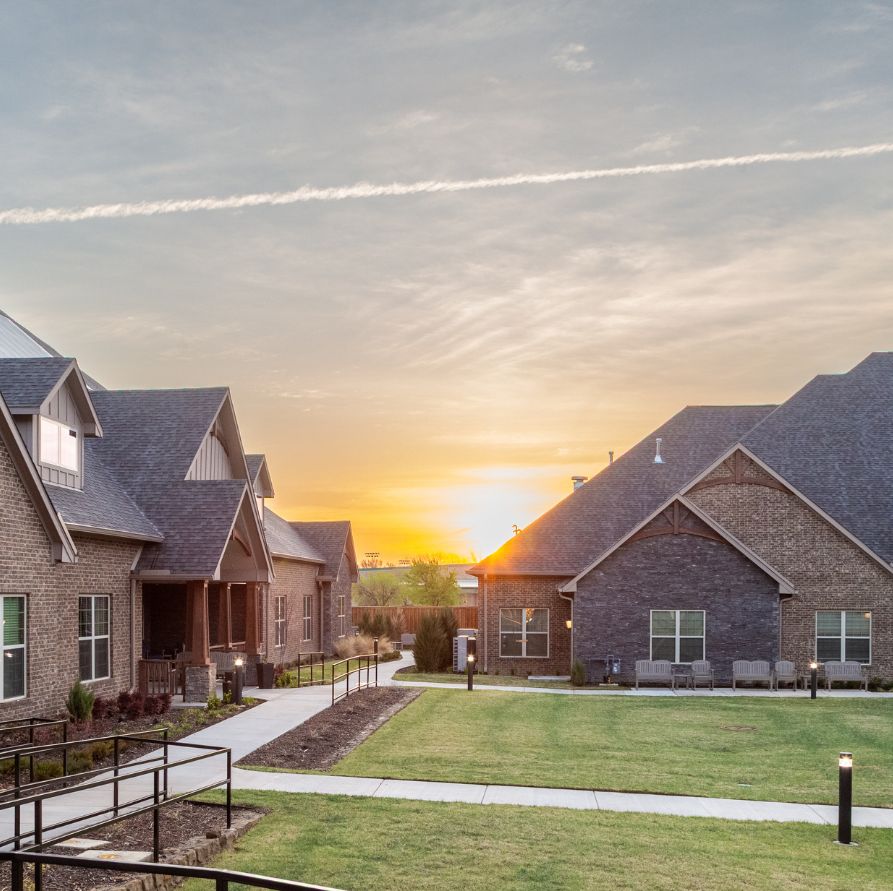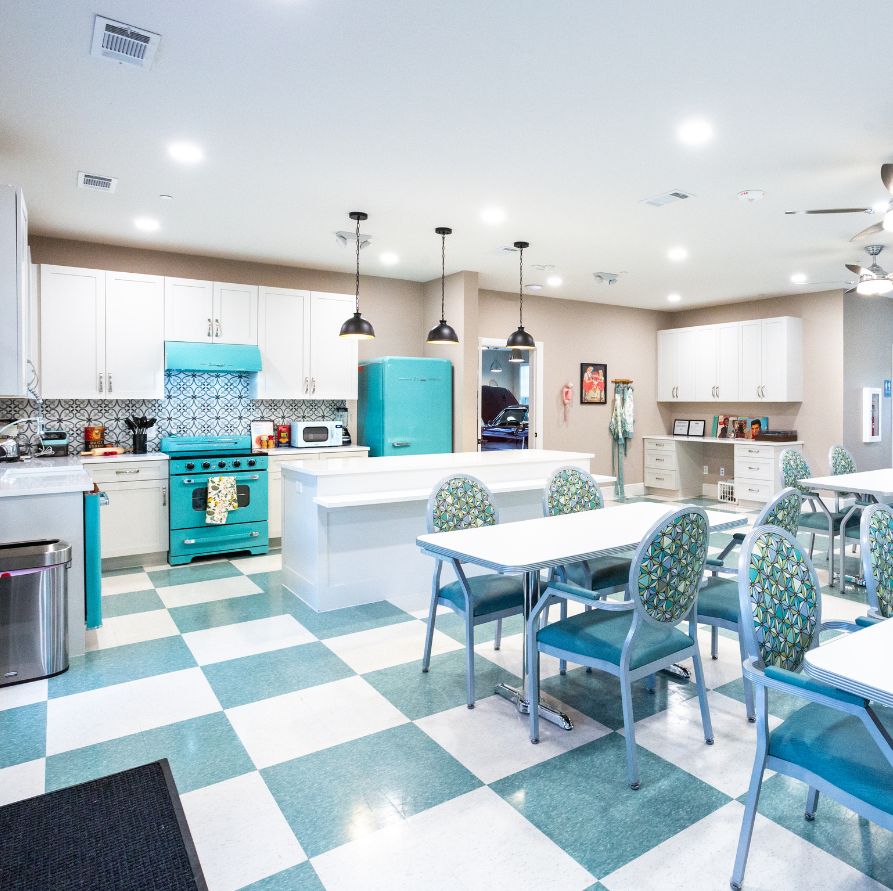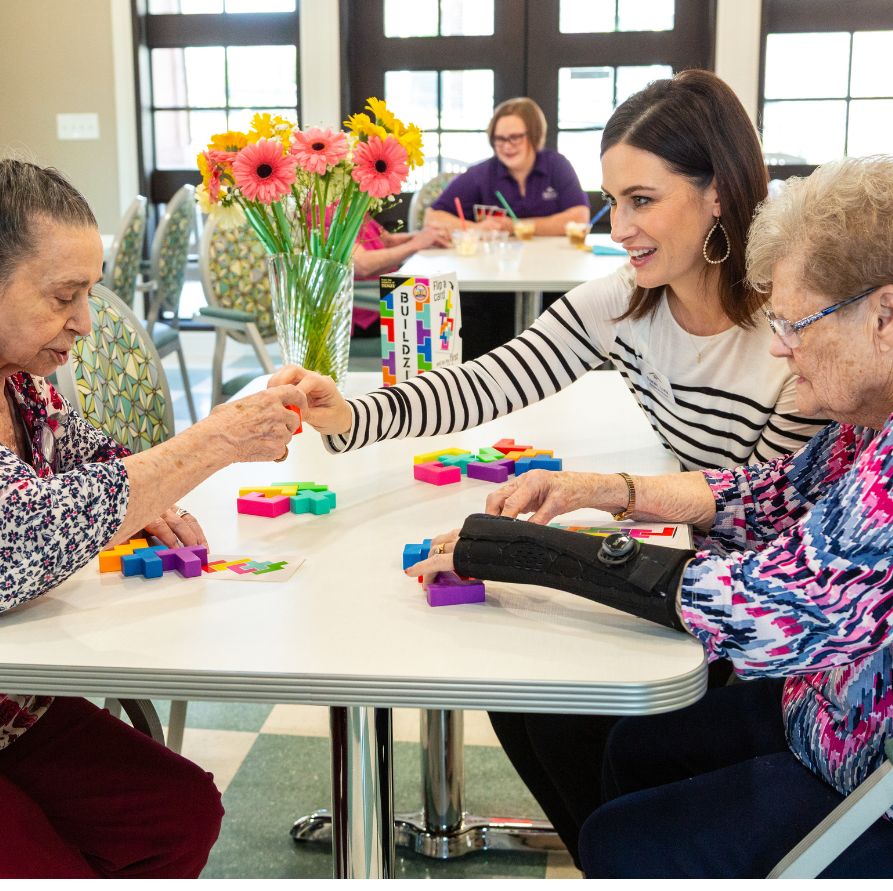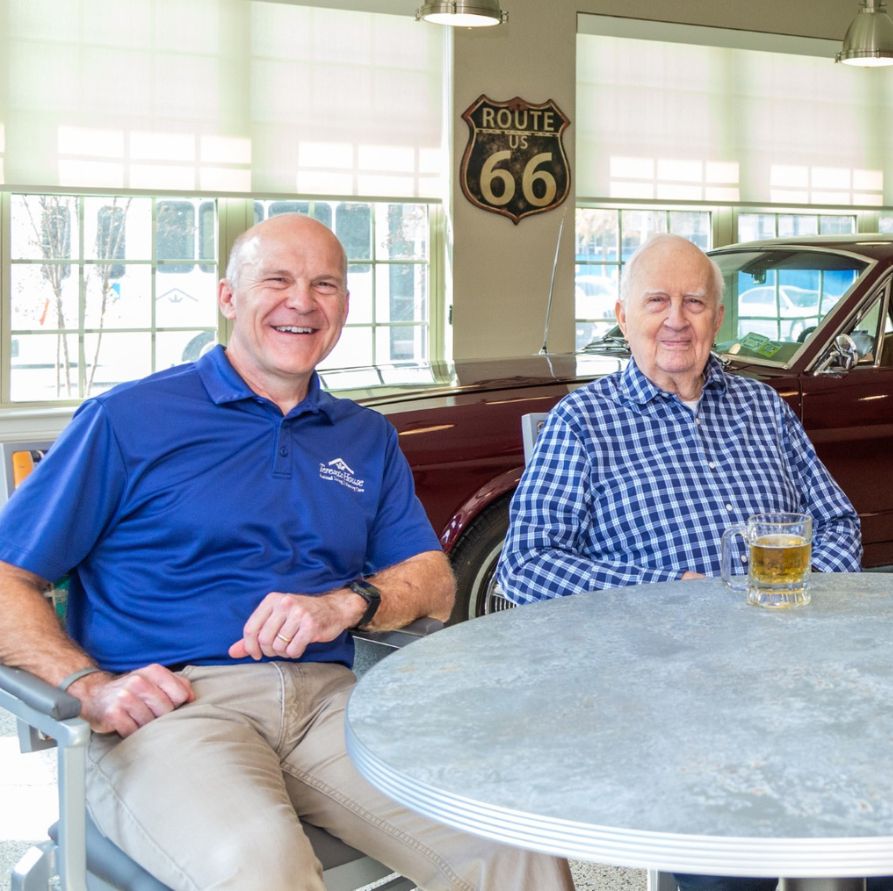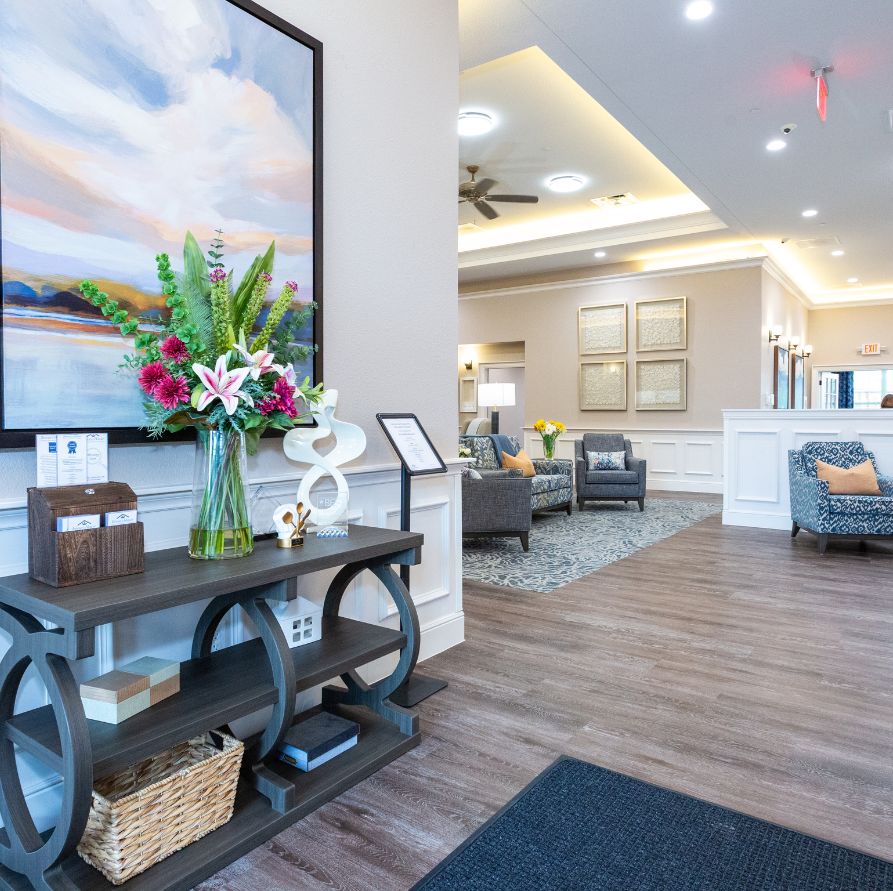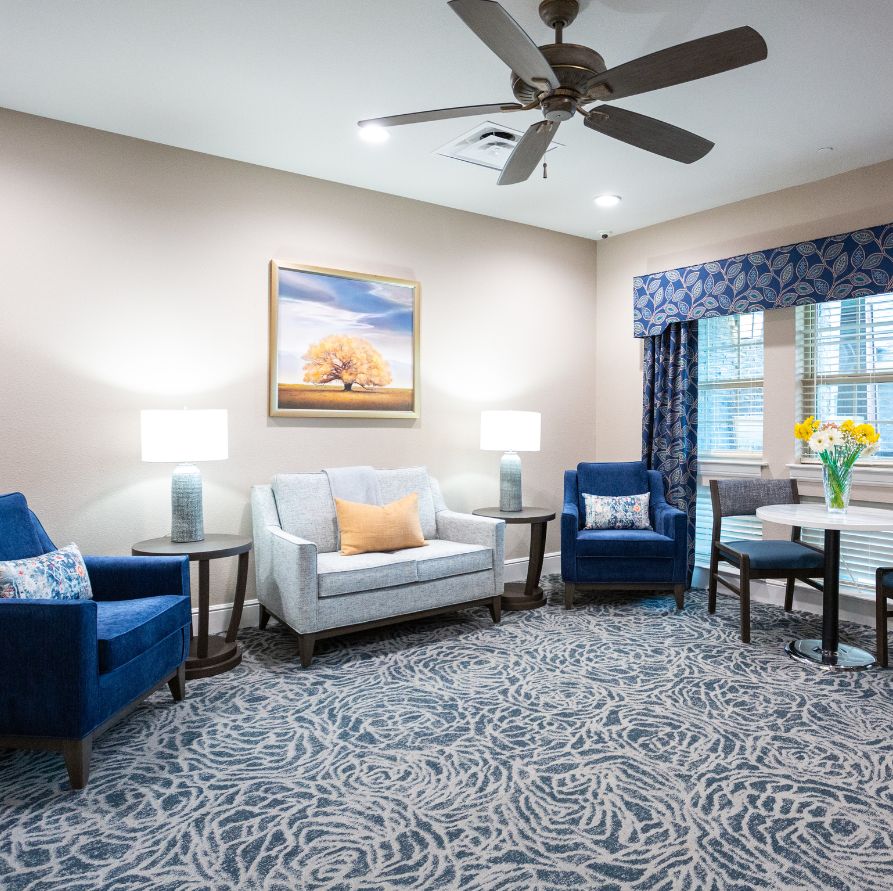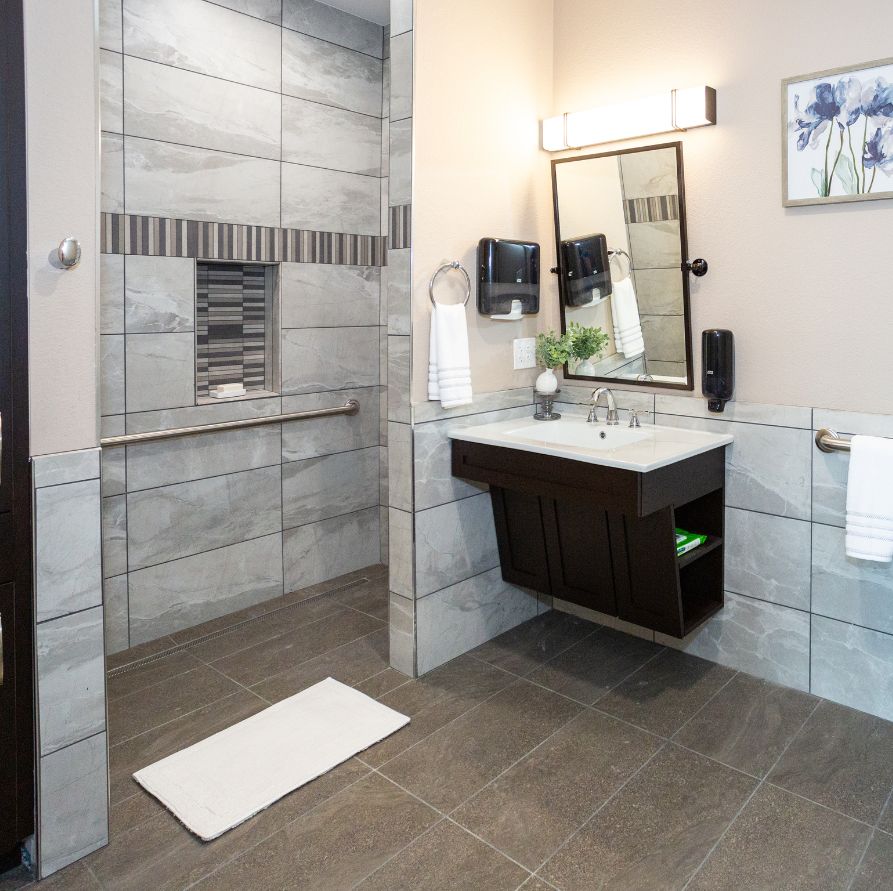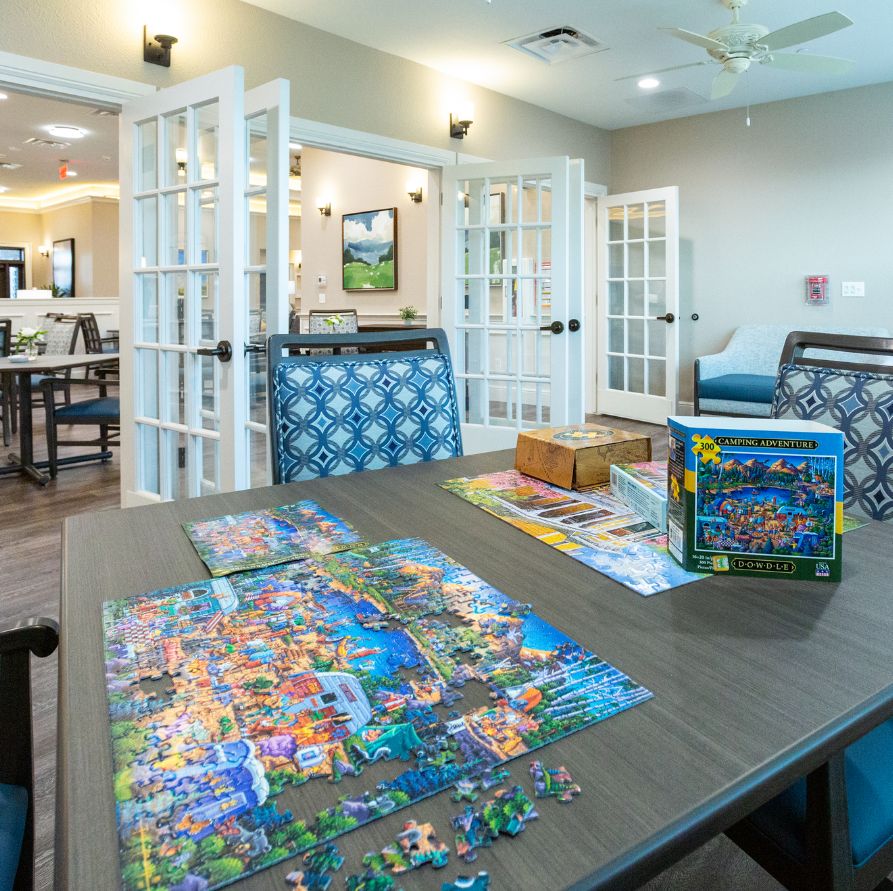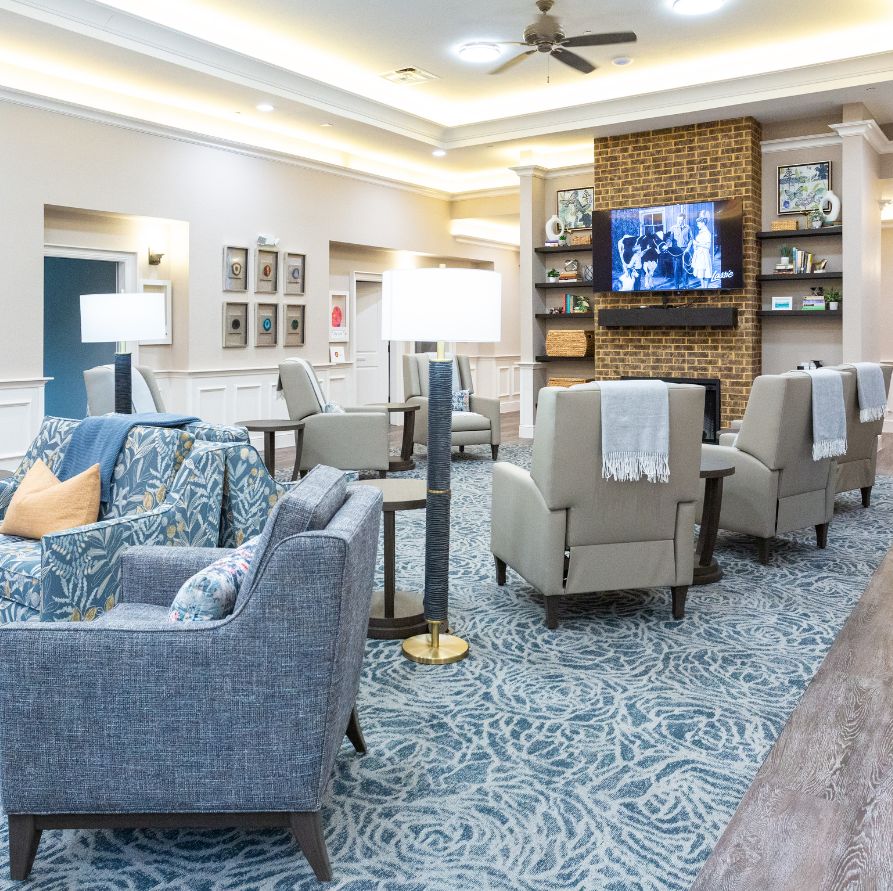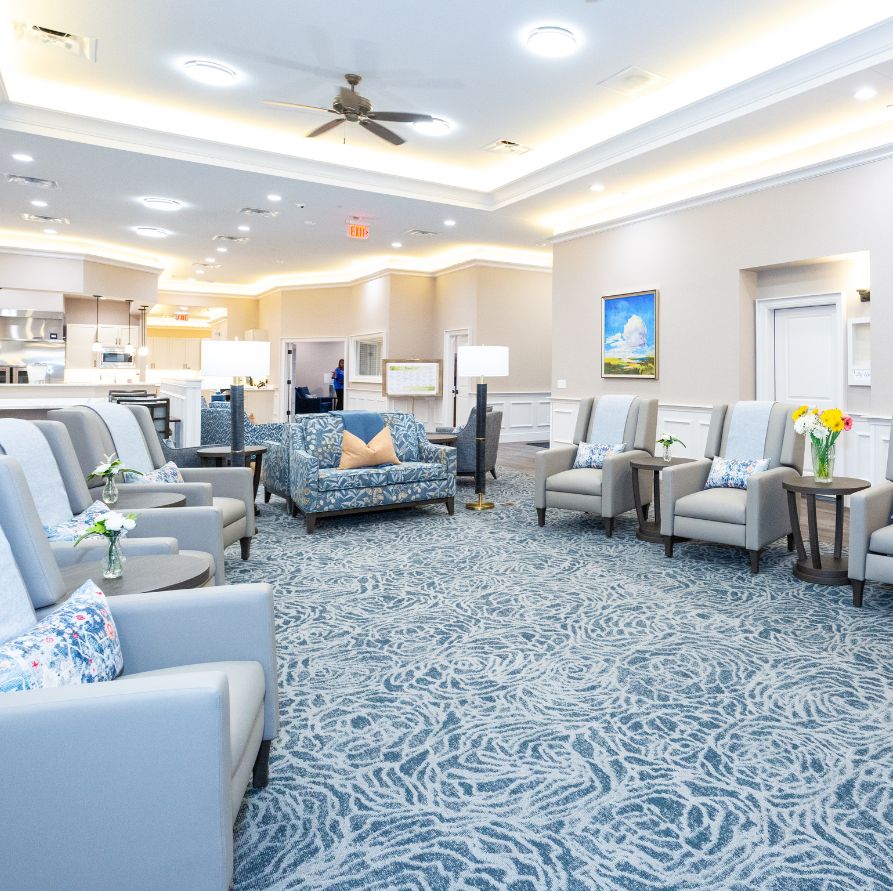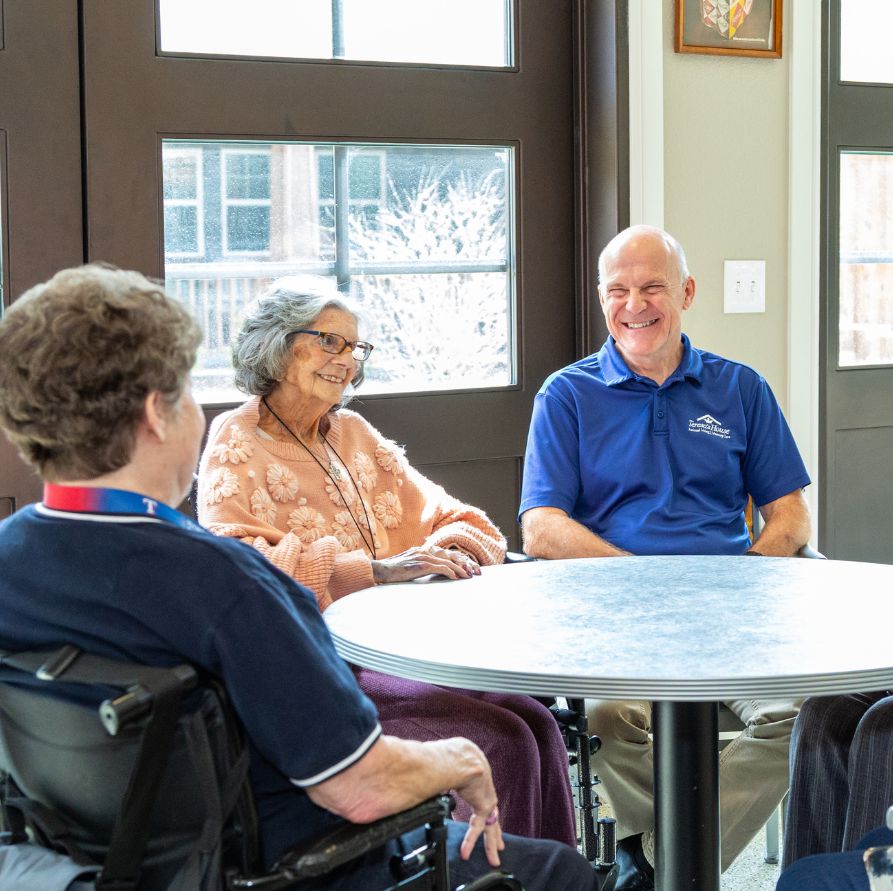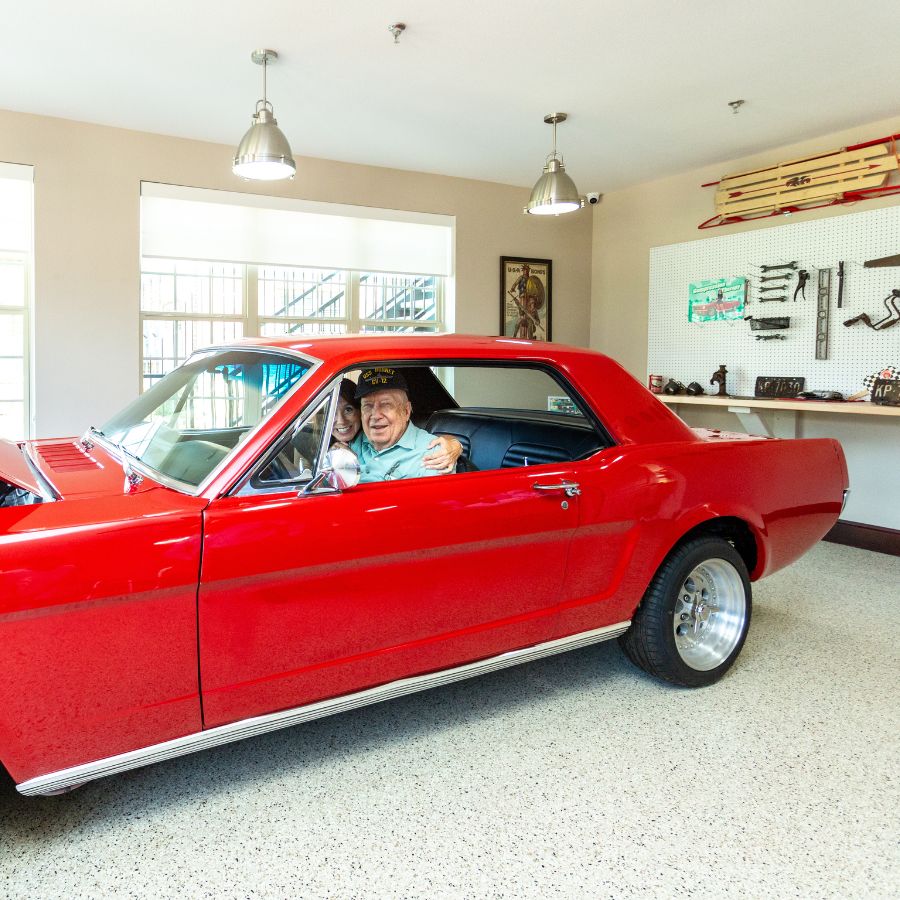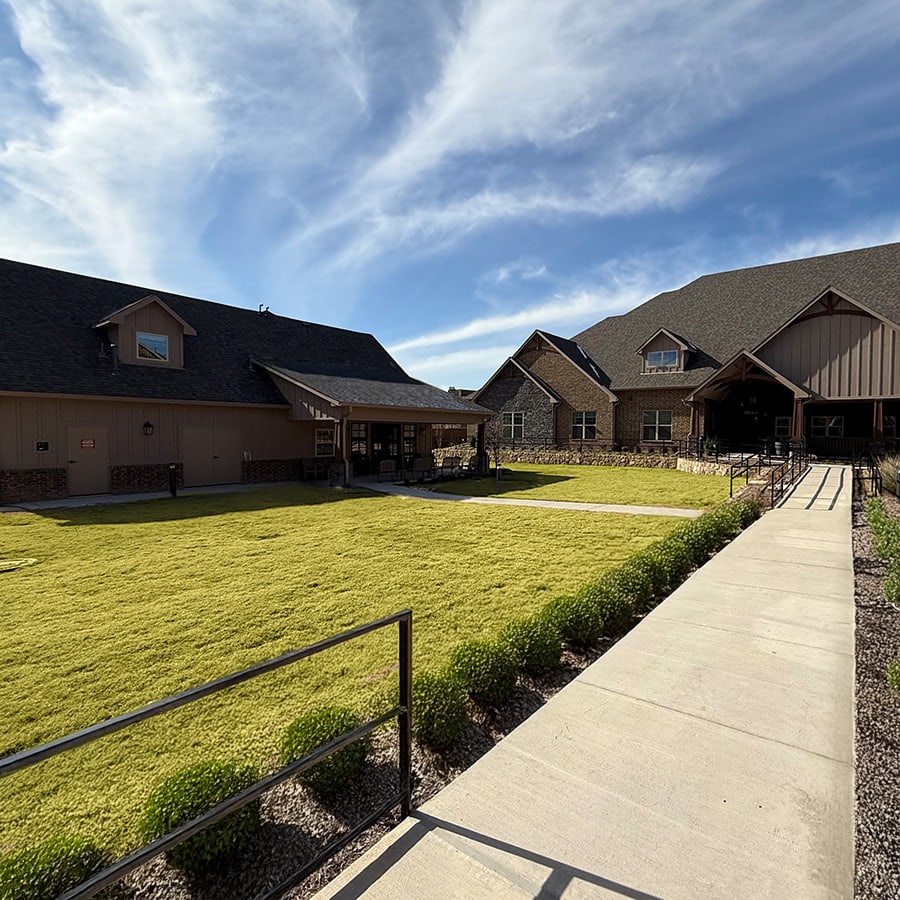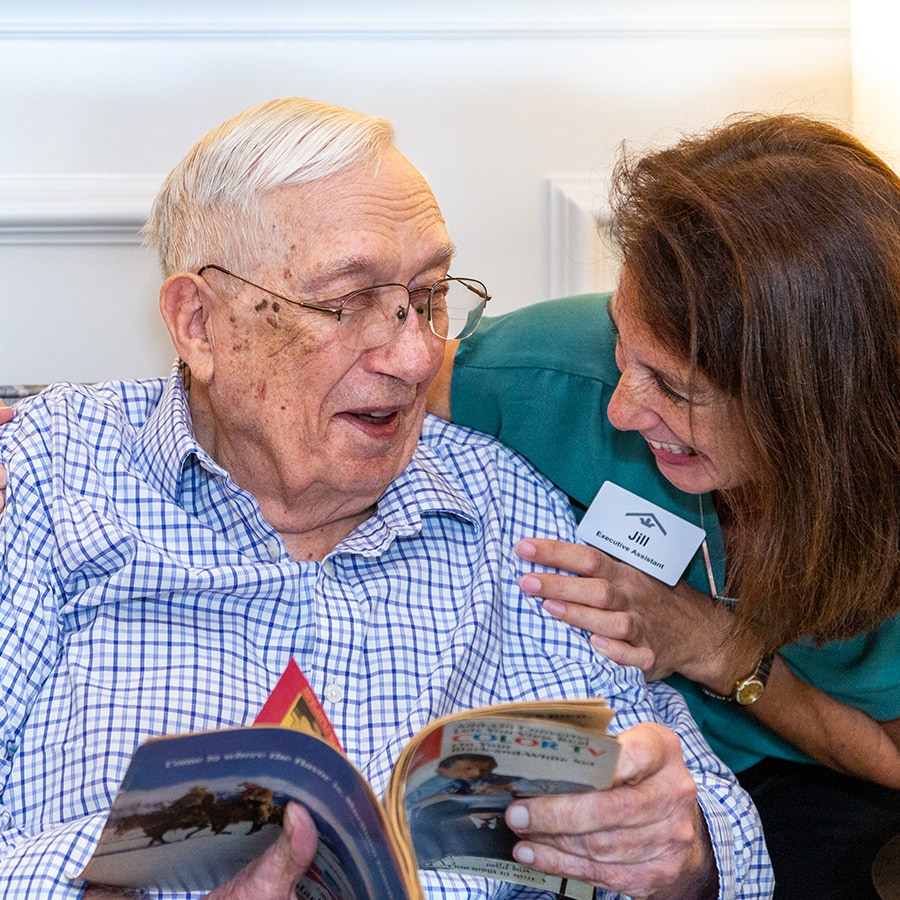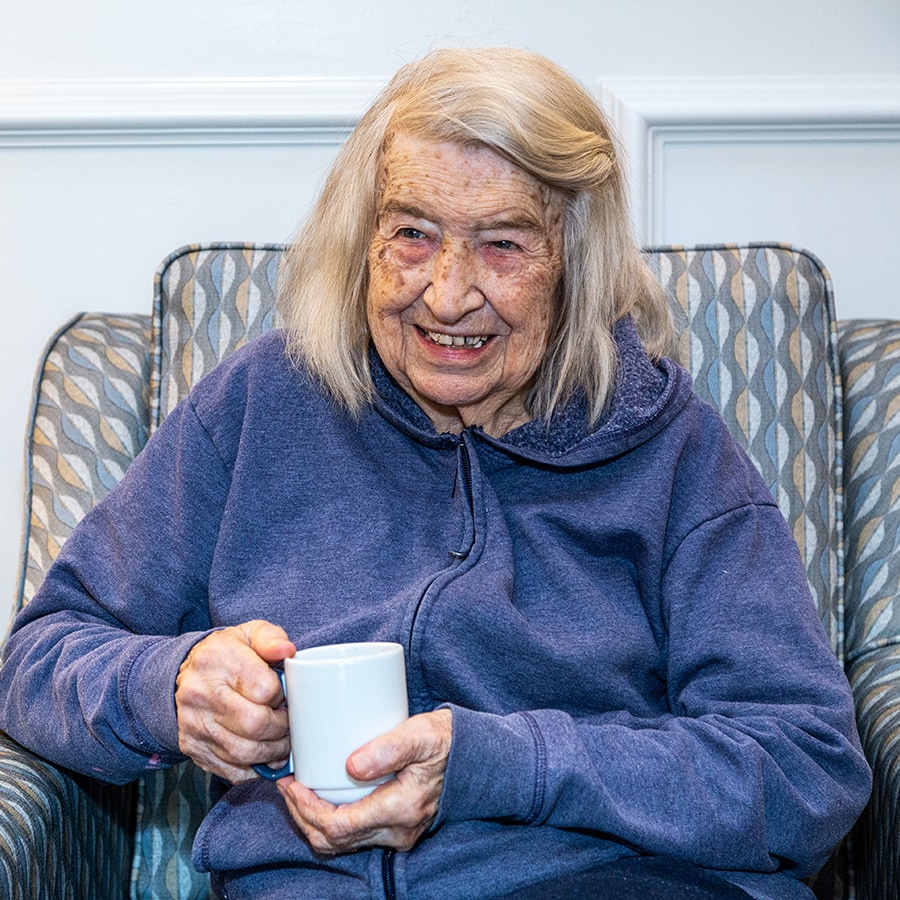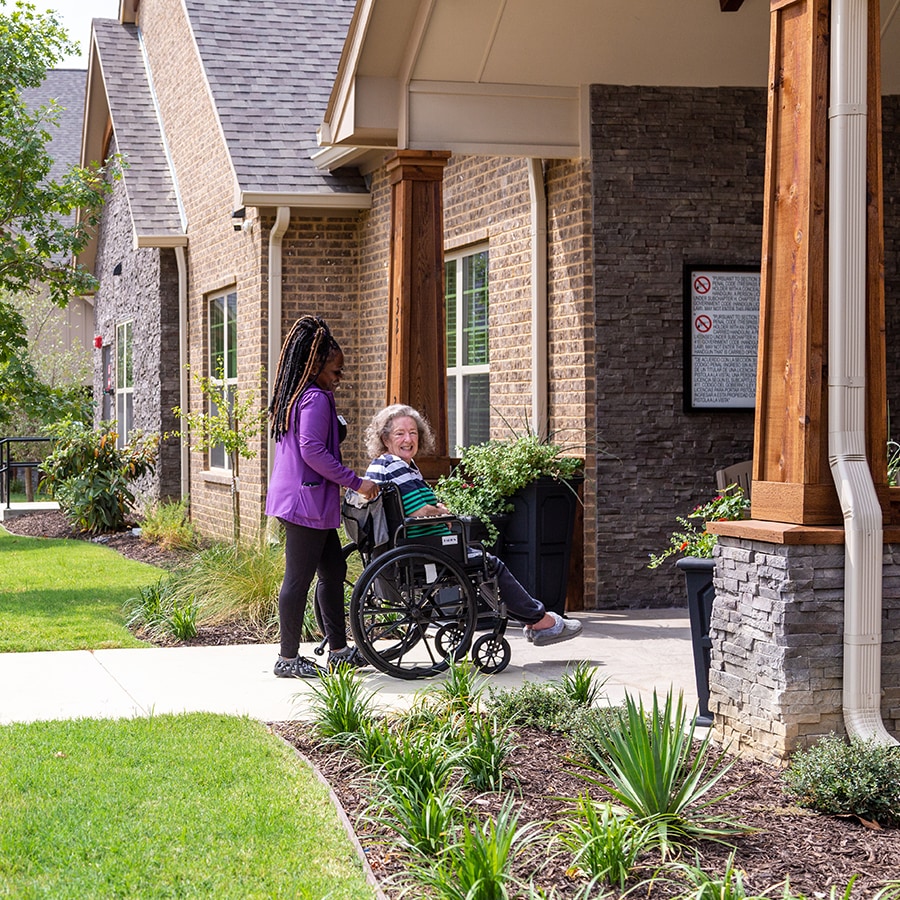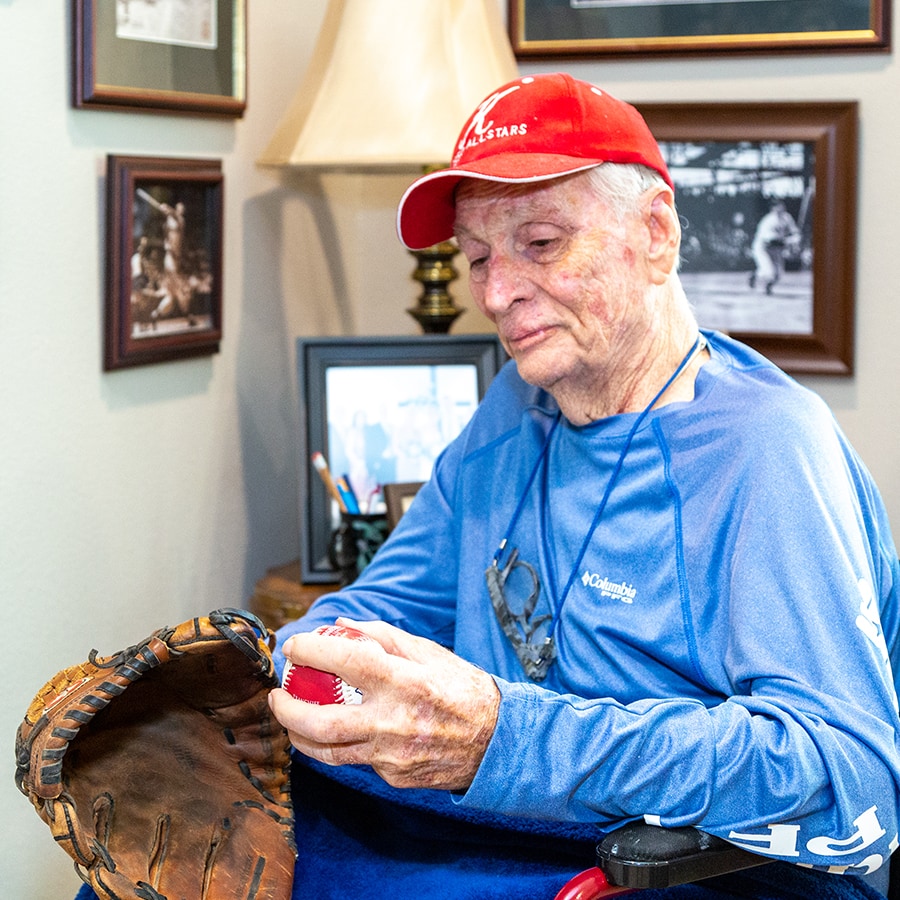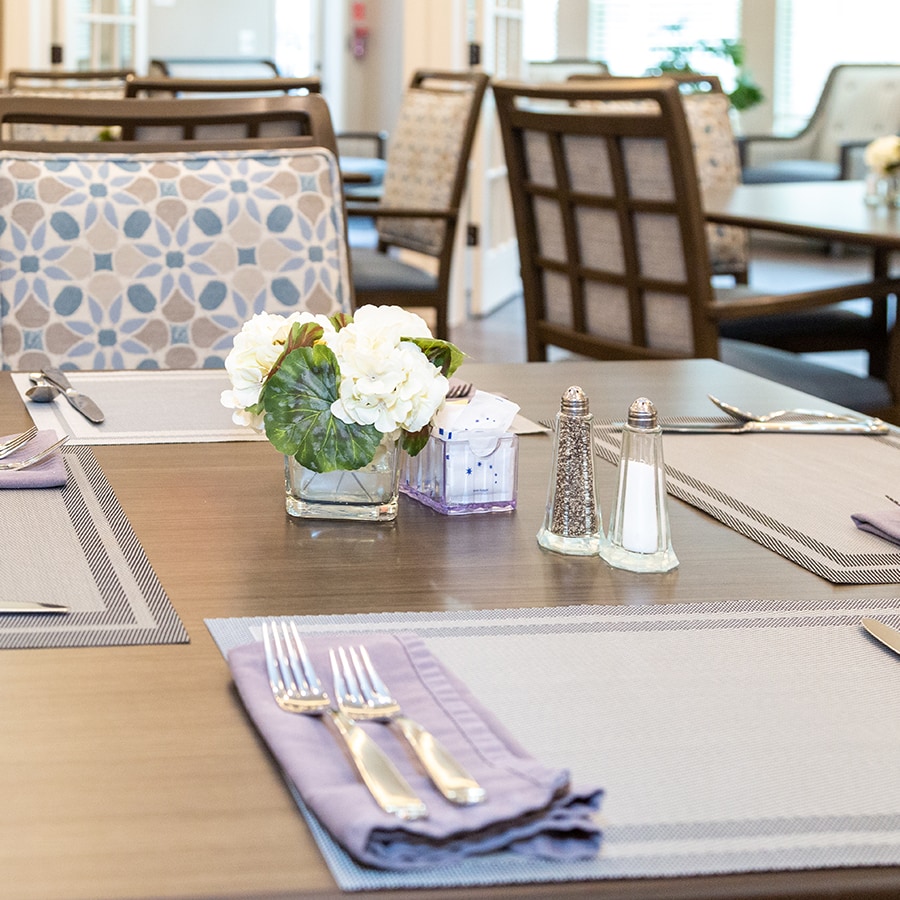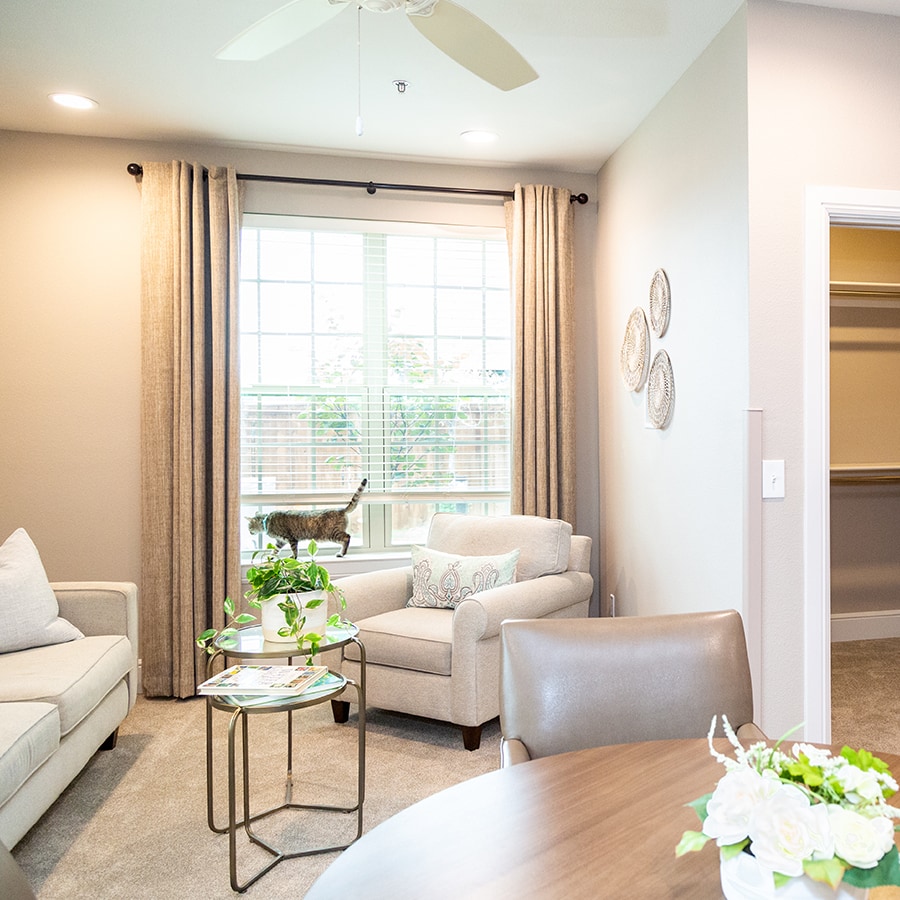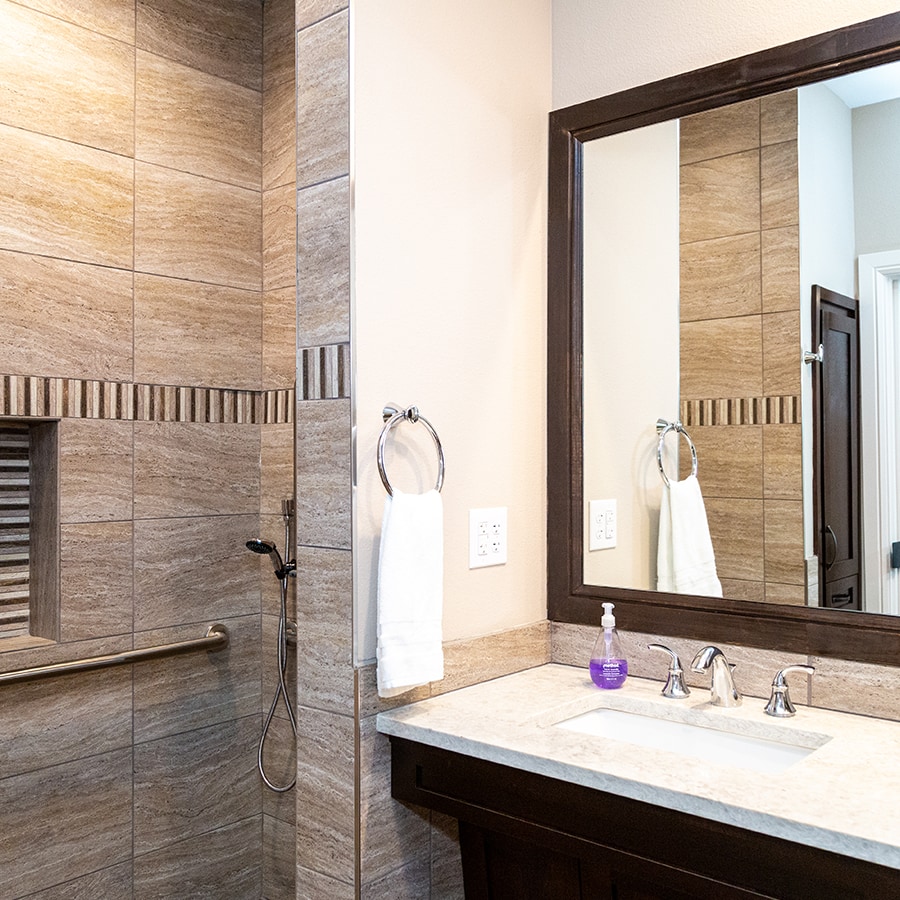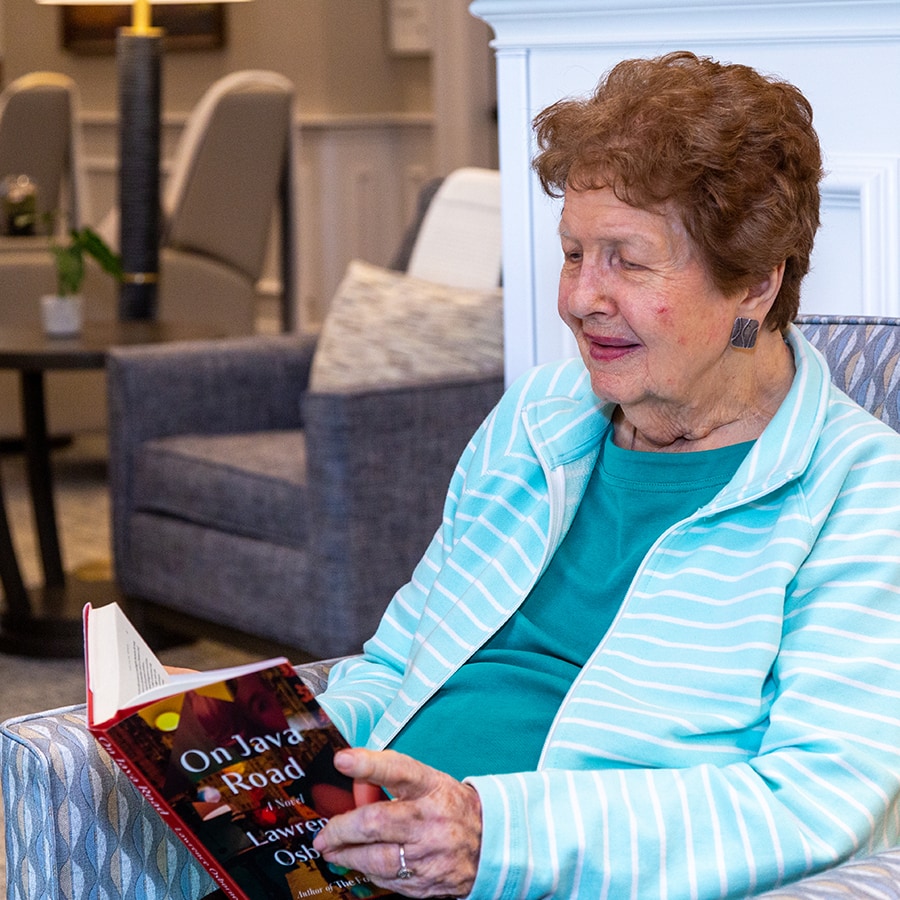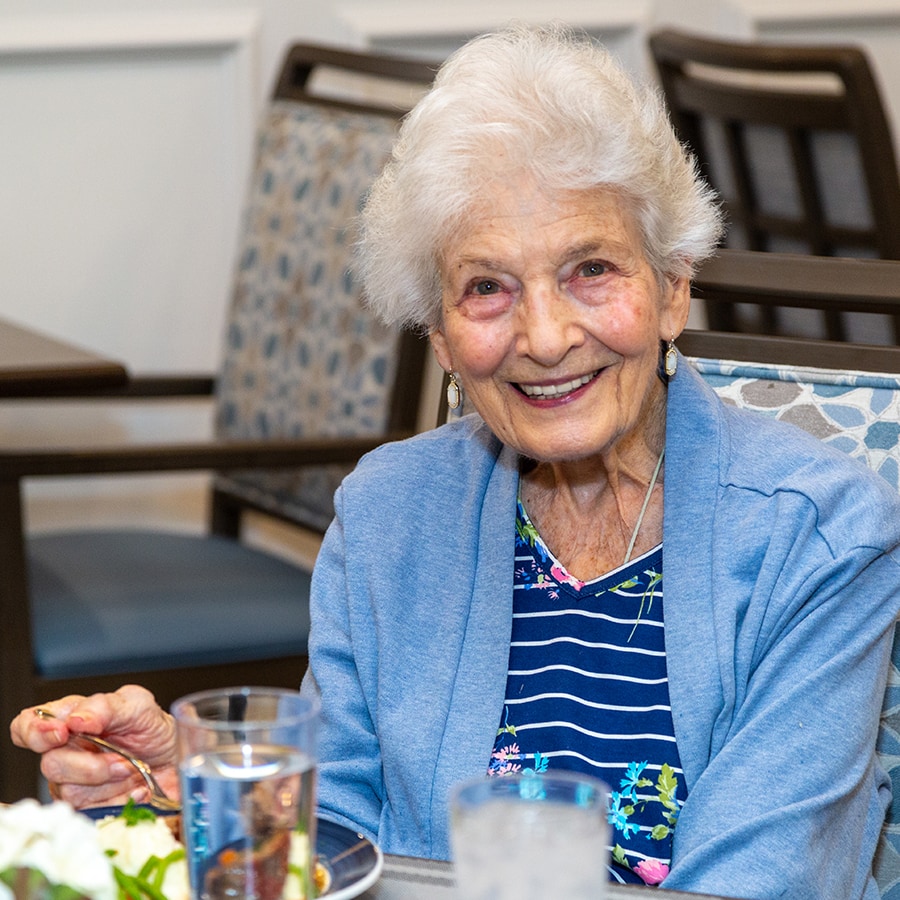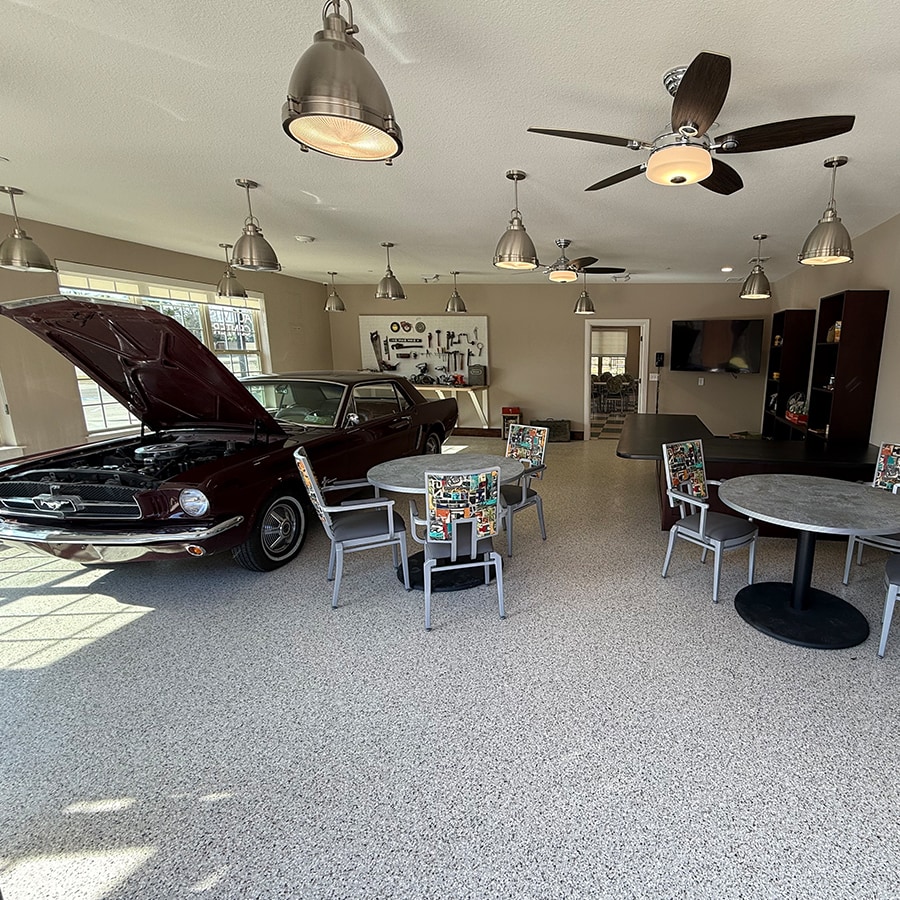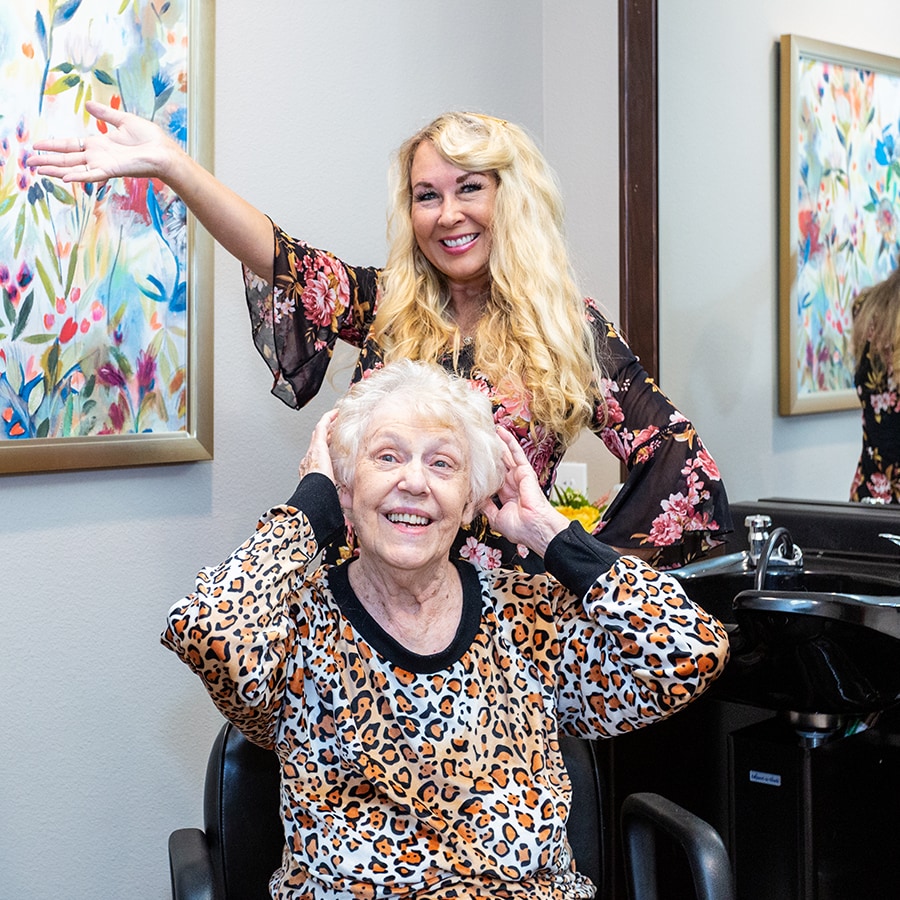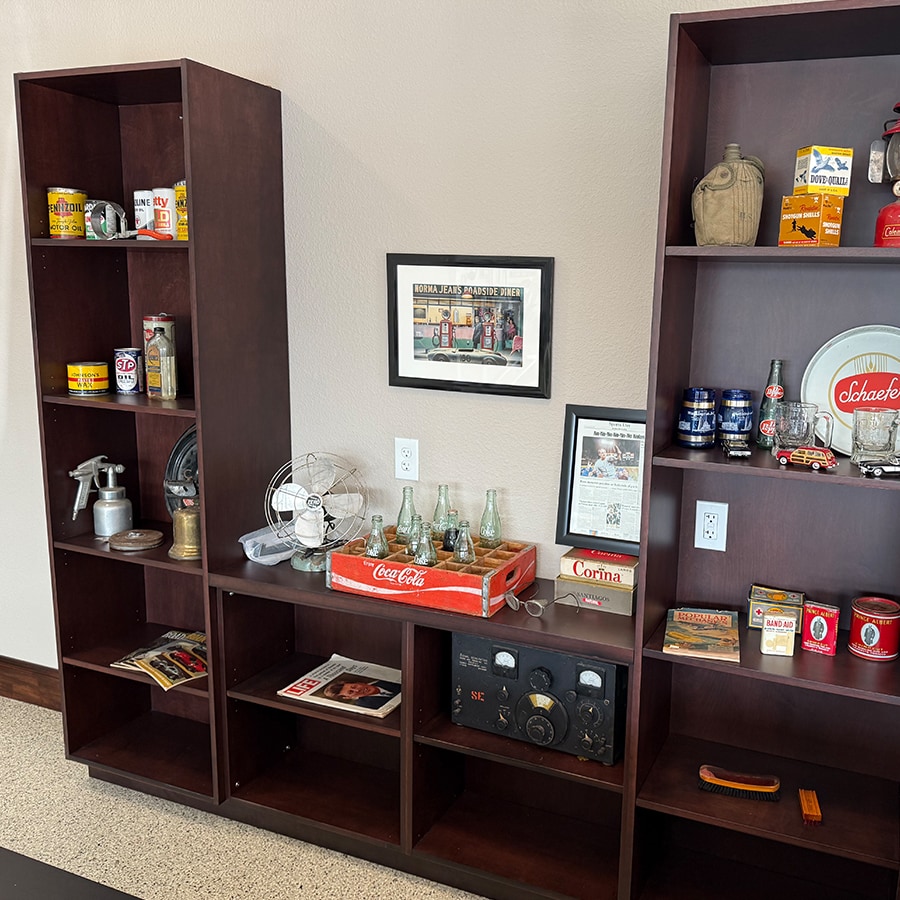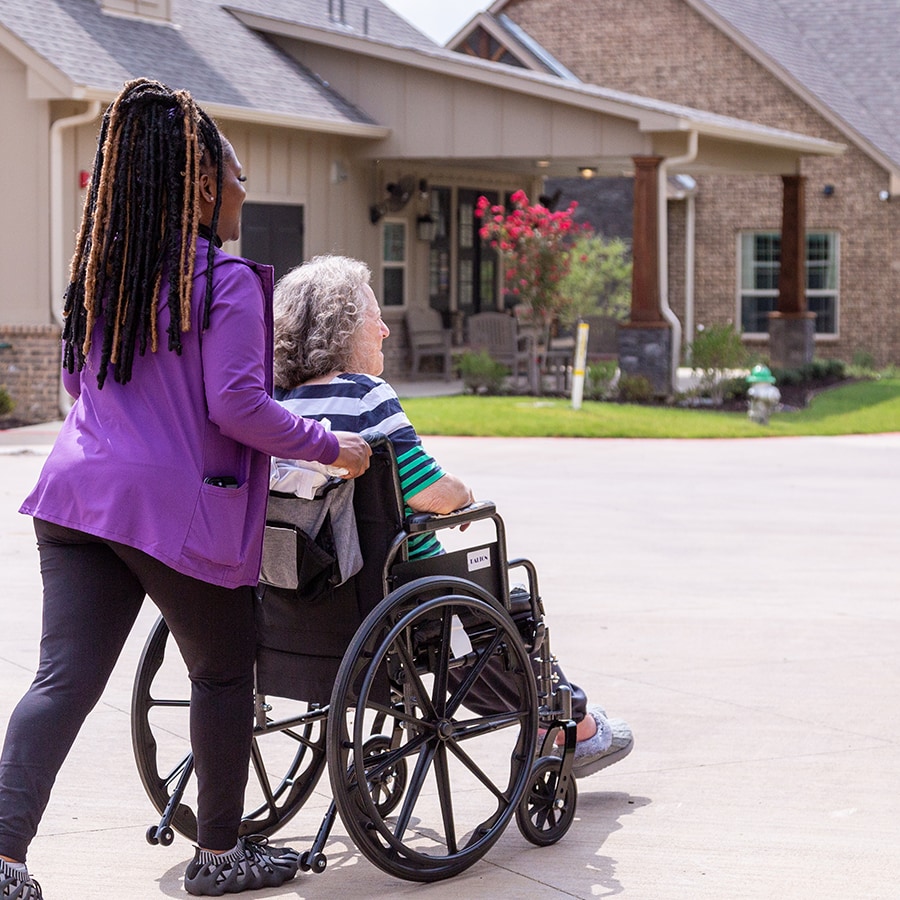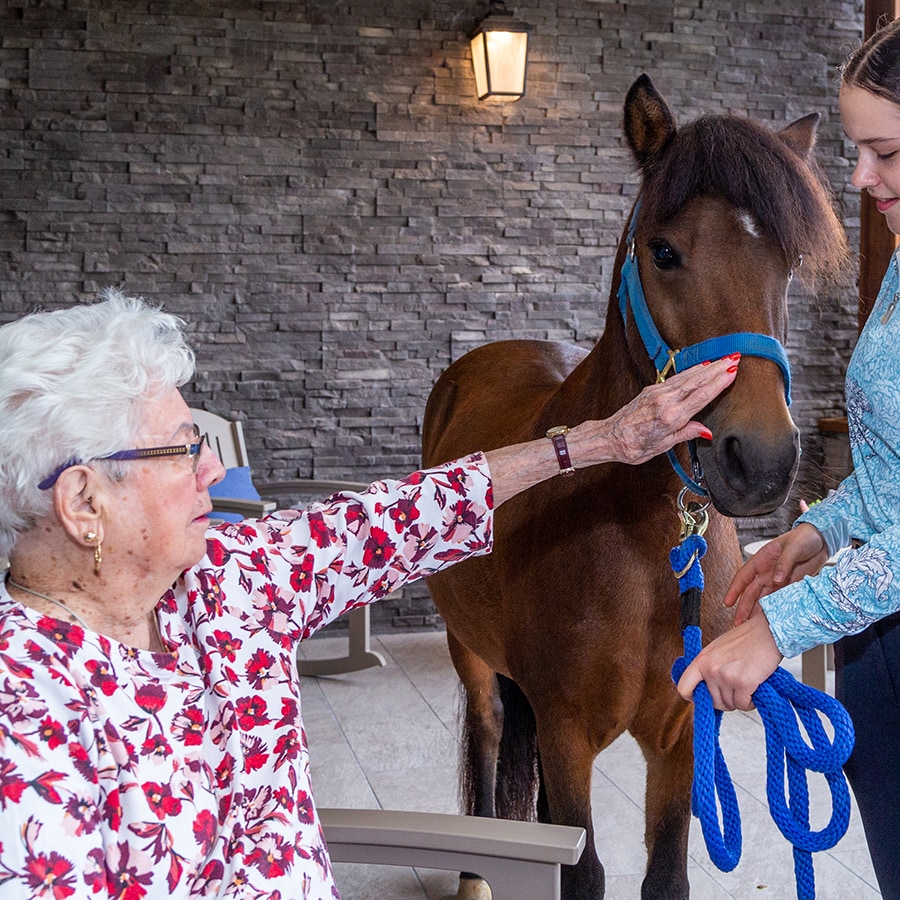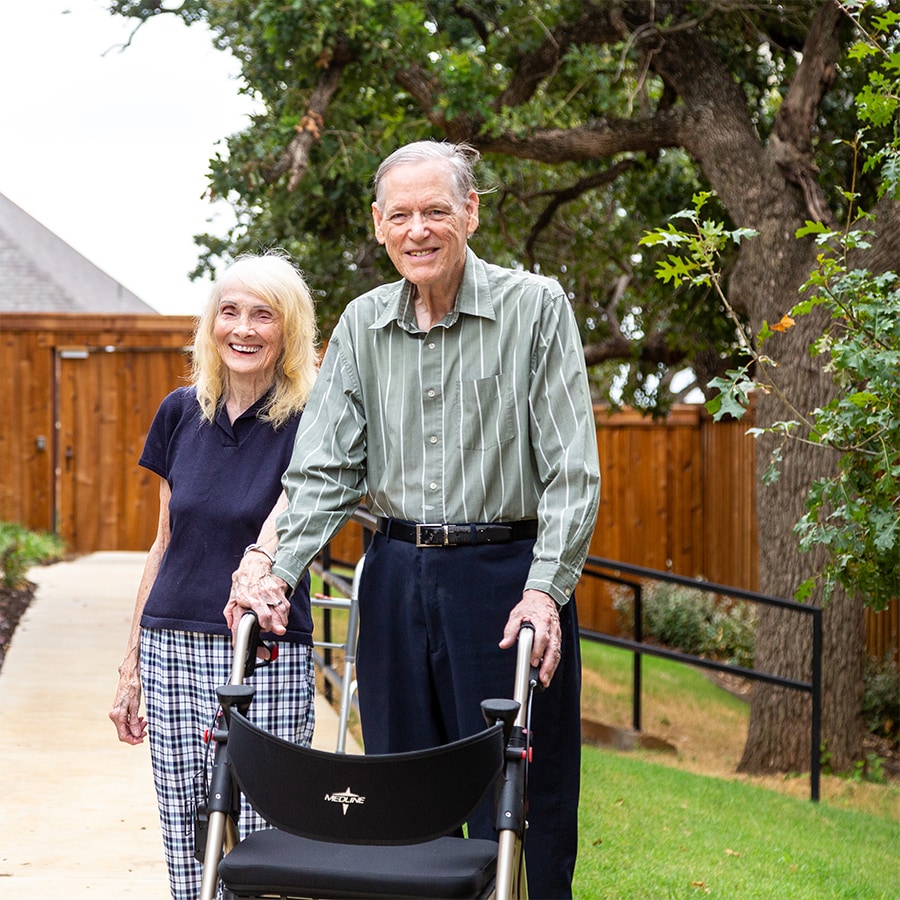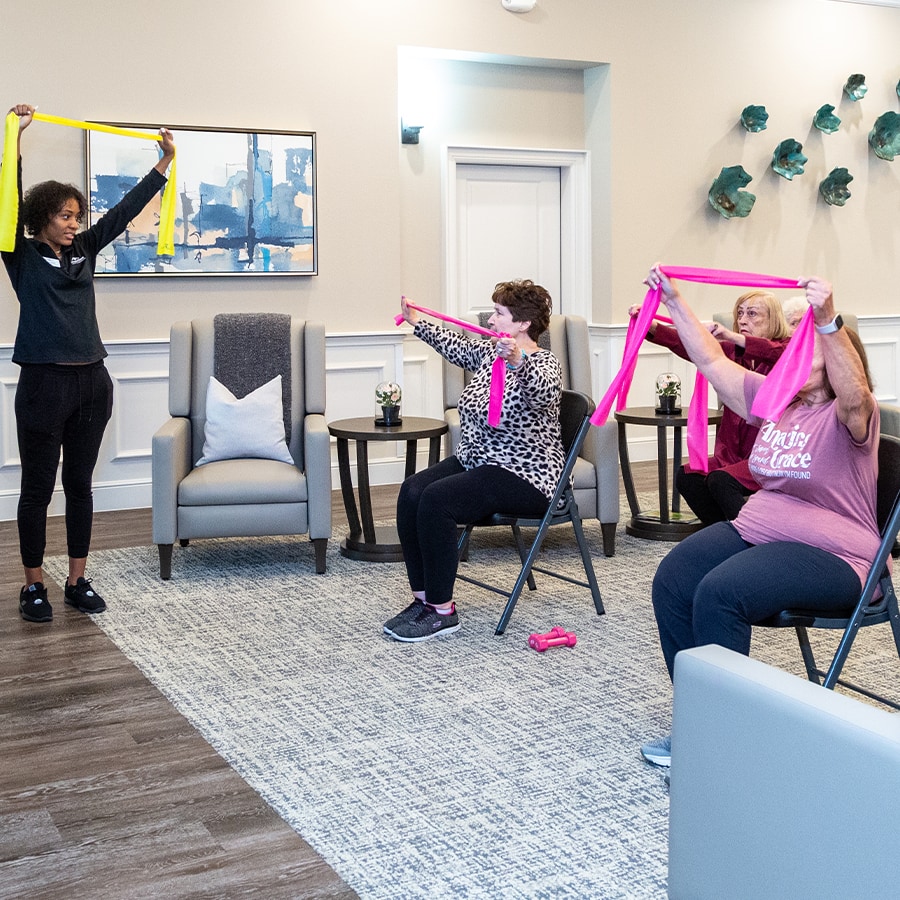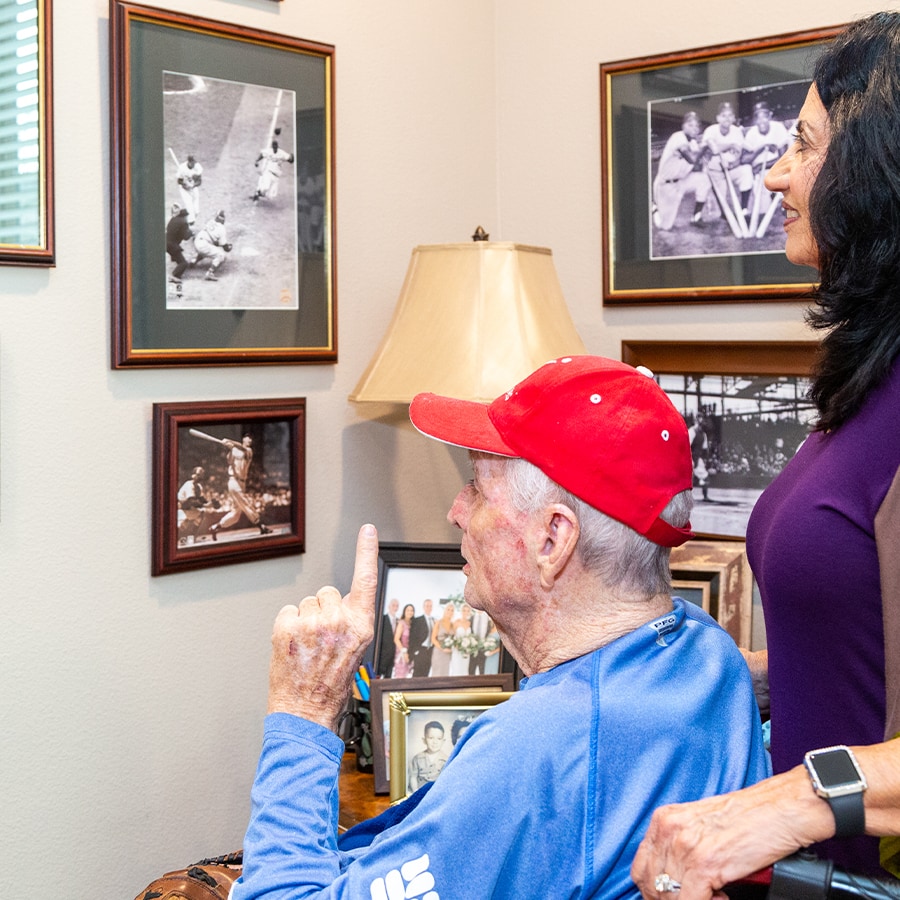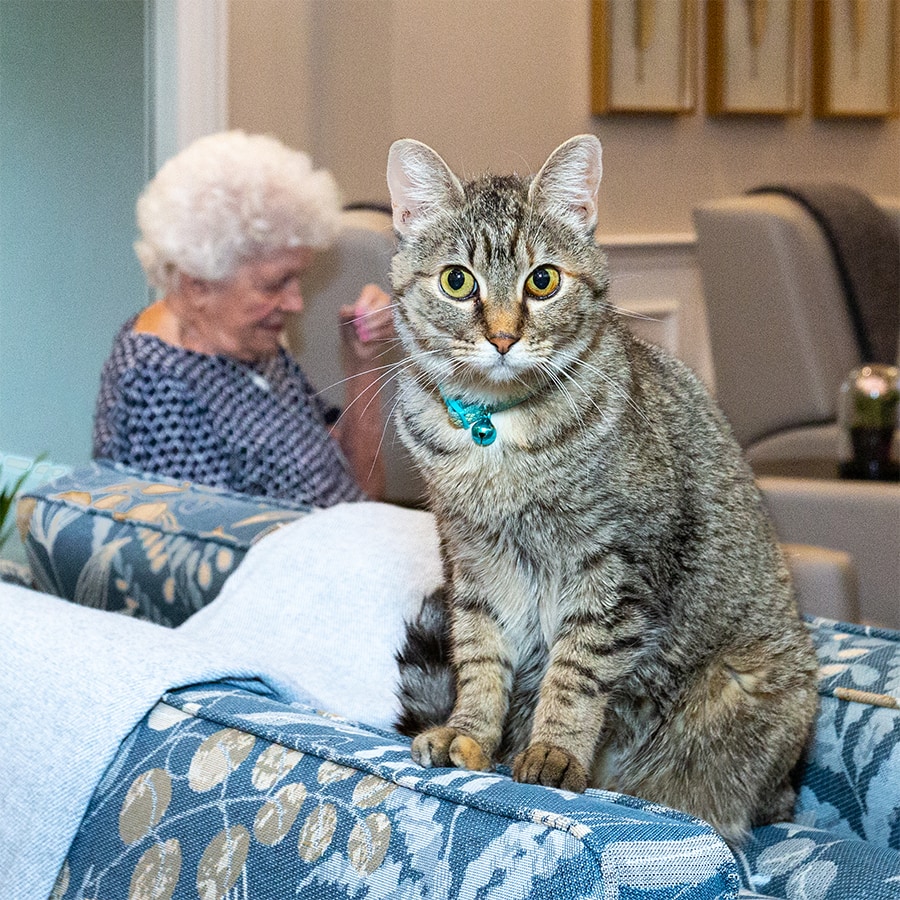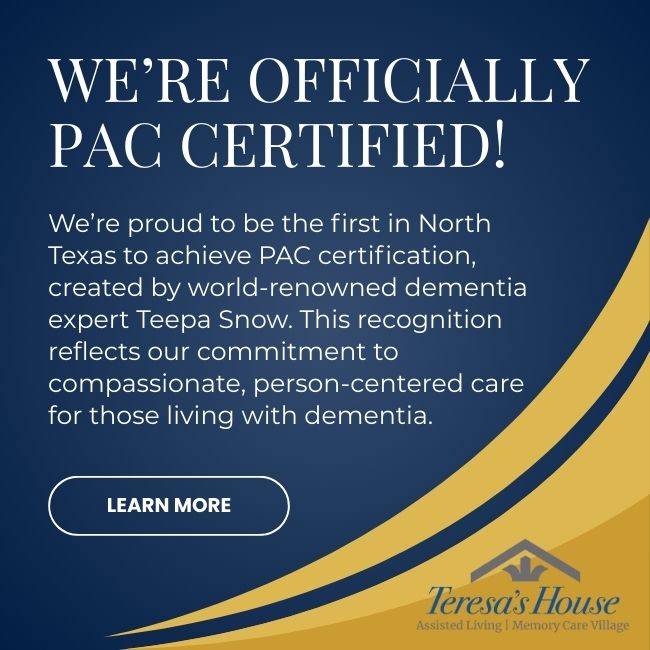The world of senior living offers endless options, from the level of care provided to a community’s culture and atmosphere. As you take the time to explore the appropriate living options for your loved one, you may notice there’s a lot more to consider than the venue.
Memory care is not the same as skilled nursing. Although they align in supporting people (regardless of age) who require additional care, they are not interchangeable living options:
- Memory care focuses on supporting people with varying stages of cognitive decline.
- Skilled nursing focuses on medical treatment and physical rehabilitation for individuals recovering from surgery, illness, or injury.
The right living space can directly affect your loved one’s quality of life. Monitoring your loved one’s overall needs can help you make an informed decision.
Defining Memory Care
Memory care is a specialized area of senior living that supports people with Alzheimer’s, dementia, or other memory-related conditions. It provides a safe and welcoming environment tailored to meet the unique needs of individuals with cognitive impairments.
Personalized Care Plans
A person’s experience with cognitive decline is unique. A personalized plan encourages staff to tailor their approach to care based on residents’ evolving wants and needs.
Structured Routines
Providing residents with predictability can help reduce confusion and anxiety.
Specialized Staff Training
Staff have experience managing behaviors associated with cognitive decline, including wandering and agitation. They have experience supporting older adults with compassion and understanding.
Protective & Secure Environment
Memory care prioritizes residents’ safety by featuring secured doors (to prevent wandering), open floor plans, monitored spaces, and staff available 24/7.
Cognitive Enrichment
Activities and therapies are designed to stimulate residents’ cognitive function, preserving and promoting cognitive health.
All About Skilled Nursing
Skilled nursing, or nursing homes, focus on providing on-site advanced medical care and rehabilitation services.
It’s a supportive environment ideal for people who require round-the-clock medical attention for chronic illnesses, recovering surgeries, or complex health needs.
Key features of skilled nursing include:
- Medical staff, including registered nurses & licensed medical professionals, available 24/7
- Advanced medical treatments, including physical therapy, IV therapy, wound care, or injections
- Short & long-term stay options, as some residents may benefit from recovery care while others require extended medical support
The Crossroads of Memory Care & Skilled Nursing
Though memory care and skilled nursing serve distinct purposes, their services can overlap slightly. Both memory care and skilled nursing care offer:
- Personalized care plans that evolve with resident needs
- Medication management, including managing & administering medications
- Daily living support for tasks like personal grooming & meal preparation
- Specialized staff training, however, the type of training differs based on resident needs

Memory Care vs. Skilled Nursing: Key Differences
The primary difference between these 2 options is the purpose and level of care they provide, which directly influences the community’s services, programs, and training.
Memory care focuses on supporting people with cognitive decline. Residents require help with daily activities, memory stimulation, and behavioral management. Older adults living in a memory care community typically don’t need constant medical care.
Meanwhile, residents in skilled nursing might be recovering from surgery, living with chronic illnesses, or needing consistent medical monitoring. They benefit from advanced medical care and rehabilitation.
Other differences between the 2 care options include:
- Activities & therapies
- Memory care has structured routines and activities designed to support memory retention & cognitive function
- Skilled nursing residents may receive physical therapy, occupational therapy, & more
- Staff qualifications
- Memory care staff primarily train in managing dementia, Alzheimer’s disease, &, in some cases, Parkinson’s disease
- Skilled nursing care hosts a variety of health care professionals, like registered nurses & therapists, available 24/7
- Medical care
- Memory care employs medical care staff, but unlike their caregiver staff, they aren’t always available 24/7
- Medical care is available around the clock in skilled nursing facilities
Making an Informed Decision
Choosing the appropriate care option for your loved one demands your time, attention, and commitment, as their surroundings significantly impact their quality of life.
When you carefully evaluate these key factors, you can make a well-informed decision to verify your loved one receives the care and attention they deserve in the most supportive environment.
Physical Health Status
When your loved one needs consistent medical supervision, such as for chronic health conditions or post-surgical care, skilled nursing can provide 24/7 medical support to enhance their physical health.
Cognitive Health Status
A person with cognitive decline might also have chronic health concerns like diabetes or high blood pressure. They may not require constant medical attention but benefit from cognitive stimulation and chronic health management.
Independence & Mobility
Consider whether your loved one can perform basic tasks safely and independently or with minimal assistance.
Skilled nursing provides assistance for people who require substantial support. Memory care helps residents with some daily tasks while encouraging independence whenever possible.
Progression of Their Condition
Cognitive decline progresses in stages, which memory care services can manage throughout. Skilled nursing care might be more suitable if your loved one requires more intensive end-of-life support.
Emotional & Social Well-being
Memory care focuses on group events, activities, and therapies to foster relationships and enrich overall quality of life. Skilled nursing places a stronger emphasis on overall medical care.
Offering Compassionate Support at Teresa’s House
Finding the right community for your loved one is a labor of love. Working with a team that understands and cares can make the process more manageable and rewarding.
Connect with Teresa’s House at Argyle to schedule a visit to our memory care community. Meet our compassionate team and wonderful residents today!
